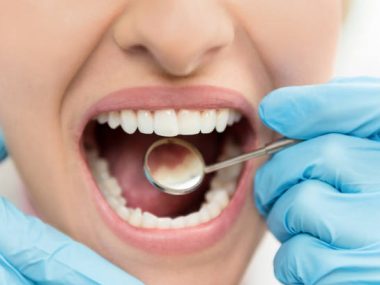Is dental insurance worth it? In a world where healthcare costs continue to rise, the question of whether various insurance options are truly worth the investment has become a common and crucial consideration.
Dental health, an integral part of overall well-being, is no exception.
As individuals and families strive to maintain optimal oral hygiene and tackle unexpected dental issues, the debate over the value of dental insurance has gained prominence.
Is dental insurance worth it? This question delves into a complex web of factors, ranging from financial considerations and personal dental care habits to the intricacies of insurance coverage.
In this article, we will navigate the landscape of dental insurance, dissecting its advantages and limitations, and equipping you with the insights needed to make an informed decision about whether dental insurance is a worthwhile investment for your individual needs and circumstances.
Also Read;
How Can Mortgage Fraud Be Detected?
How Does a Reverse Mortgage Work in California?
Is Dental Insurance Worth It?
The decision to invest in dental insurance hinges on a blend of financial prudence and individual oral health requirements.
Dental procedures can incur substantial costs, prompting the consideration of insurance.
Dental insurance typically covers routine check-ups, cleanings, and basic procedures, offering a safety net against unforeseen expenses.
However, the worth of dental insurance varies.
Those with consistent oral health habits might find that the annual premiums outweigh potential savings.
For individuals needing frequent treatments or with a history of dental issues, insurance could prove invaluable.
Understanding policy specifics is vital; coverage limits, waiting periods, and exclusions can impact the value.
Some employer-sponsored plans offer comprehensive coverage at a reasonable cost, tilting the scales in favor of insurance.
Conversely, for those without access to such plans, individual policies can be costly.
Dental discount plans, an alternative, provide reduced rates without the constraints of traditional insurance.
Ultimately, assessing whether dental insurance is worth it necessitates a close evaluation of personal oral health practices, the potential for future dental work, and the specifics of available insurance or discount options.
By analyzing costs, potential savings, and individual needs, one can determine whether the security of dental insurance justifies its financial outlay.
Benefits of Having Dental Insurance
Having dental insurance can offer a range of benefits that contribute to both oral health and financial well-being.
One of the primary advantages is improved access to preventive care.
Routine check-ups, cleanings, and screenings are often covered, enabling individuals to maintain good oral health and catch issues early.
Dental insurance can also alleviate the financial burden of unexpected dental procedures.
Complex treatments like root canals, crowns, and orthodontics can be expensive, but insurance can significantly reduce out-of-pocket costs.
This financial predictability provides peace of mind and encourages timely treatment.
Furthermore, dental insurance encourages regular dental visits, fostering proactive oral care habits.
By covering preventive services, it incentivizes individuals to address minor concerns before they escalate into more serious problems.
Additionally, dental insurance networks often include a range of qualified providers, giving policyholders options and ensuring access to quality care.
For families, dental insurance can be particularly advantageous, as it supports the oral health needs of all members while managing costs.
Overall, dental insurance not only promotes oral well-being but also offers a safety net against unexpected expenses, making it a valuable investment for those looking to prioritize both their dental health and financial stability.
Factors to Consider When Evaluating Dental Insurance
Evaluating dental insurance requires a careful assessment of various factors to determine its suitability for individual needs.
Firstly, coverage specifics should be scrutinized.
Consider the extent of coverage for preventive, basic, and major procedures, as well as any waiting periods or pre-existing condition limitations.
Cost is a crucial aspect. Compare monthly premiums with potential out-of-pocket expenses, co-pays, and deductibles.
Analyze whether the insurance premiums balance out against anticipated dental expenses, taking into account your oral health history and habits.
Network size matters. Check if your preferred dental provider is within the insurance network, as out-of-network costs can be higher.
Additionally, assess the flexibility of changing dentists if needed.
Coverage caps and limitations warrant attention.
Some policies have annual or lifetime limits on benefits, affecting long-term financial feasibility.
Consider the broader benefits offered, such as orthodontic coverage, cosmetic procedures, and emergency care during travel.
Evaluate the policy’s flexibility in accommodating changes like family additions or changes in employment status.
Ultimately, the worth of dental insurance lies in aligning its features with your specific dental needs, financial situation, and preferences.
A thorough analysis of these factors ensures that the chosen insurance provides the best balance of coverage and cost-effectiveness for your unique circumstances.
Also Read:
How Long Is the Average Mortgage?
How Long After Bankruptcy Can You Get a Mortgage?
Conclusion
In the intricate realm of dental insurance, the question of its worth hinges on personal context.
For some, the security of coverage for routine check-ups and unexpected procedures is invaluable, while others might find the costs outweigh the benefits due to consistent oral health habits.
Balancing factors like coverage depth, premium costs, potential savings, and individual dental needs is essential.
Making an informed decision involves evaluating all these aspects, ultimately determining if dental insurance is a prudent investment to protect both oral health and financial well-being.






